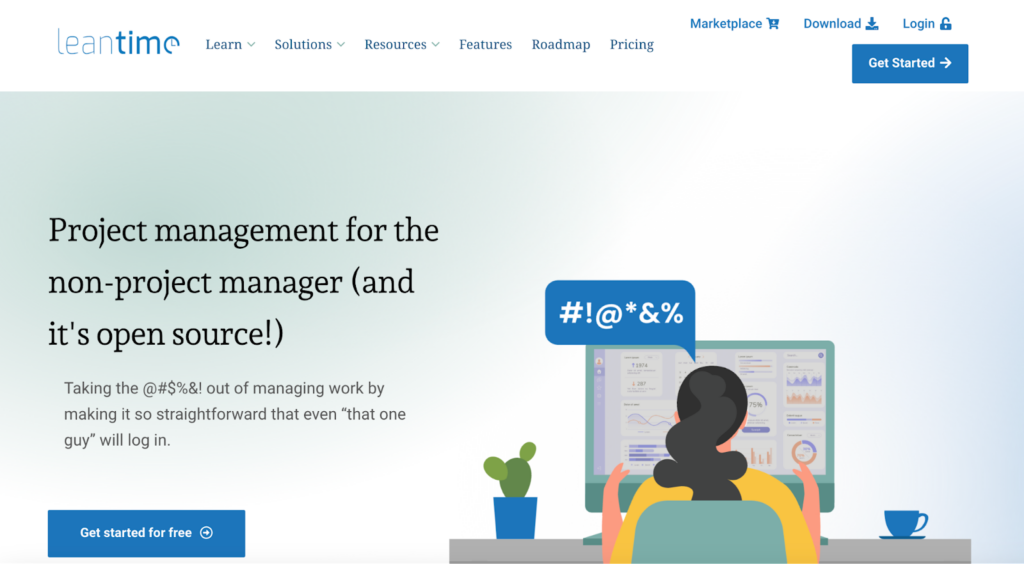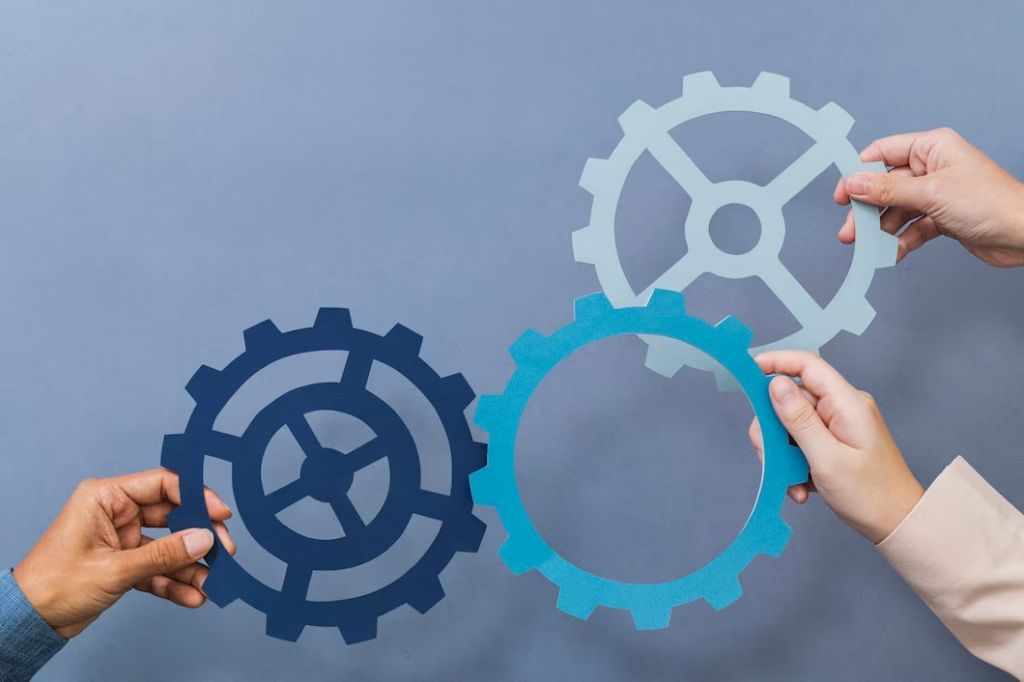Estimated reading time: 11 minutes
The world as we know it continues to evolve as technology and artificial intelligence (AI) propel human work experiences and productivity. In project management, artificial intelligence massively augments our efforts and outputs.
Many companies use AI to streamline project management and other business processes to amplify human potential. Accordingly, artificial intelligence will likely perform 80% of project management tasks by 2030.
Gone are the days of extensive manual data entry and tedious task tracking. With artificial intelligence, companies have enhanced decision-making, better resource allocation, and proactive risk mitigation.
In this article, we’ll dive deep into how AI reshapes project management by augmenting (not replacing) their capabilities and boosting productivity.
Table of contents
AI in Project Management
AI is vastly changing the way we manage projects. One study showed that organizations plan to use artificial intelligence tools to act as an:
- Project manager assistant (52%)
- Project manager advisor (42%)
- Project manager substitute (3%)
Today, AI project management tools enable team leaders to do more, not less. There’s a debate on whether AI should replace human beings. But we should look at how AI can empower, not replace, project management.
With proper project management software in place to perform repetitive and easily automated tasks, project managers can focus on more valuable tasks like:
- Project planning
- Problem-solving
- Decision-making
- Business strategy
- Team building
- Risk management

If you’re looking for a project management tool that leverages the power of AI, you should check out Leantime.io. Some of its AI-powered features include:
- AI Story Time — This feature helps create accurate project descriptions automatically to give your team more context on what the project aims to achieve.
- AI Status Updates — Have our AI assistant automatically collect project statuses and timelines for you.
- AI Status Reports – Take the status updates and automatically generate a status report that’s easy to send to stakeholders.
- AI Coach — Have a virtual AI coach show you how to improve your project plan and operations.
Project Management Tasks AI Can Do
So, what kind of tasks can an AI project management tool perform for you? Here are some of the most compelling capabilities that can empower a project management office or team the most:
Task Allocation
You can analyze your team members’ skills, track records, and availability when using AI in your project management processes. This helps you assign tasks to the most suitable individuals with data and objective insight.
Time Estimation
Some new AI tools can also tap into historical data and predict how long tasks will normally take. This improvement helps with project timelines and setting realistic expectations so that you can adjust accordingly.
Risk Assessment
By examining past projects and current variables, AI can help identify potential risks to project timelines and success. Some software will provide early alerts and mitigation strategies.
Budget Forecasting
You can use AI to review budgets and spending patterns to predict and optimize budget allocation for current and future projects. That can lead to savings in your resources or even fewer projects that exceed the budget.
Monitoring Progress
AI tools for small business operations can automatically monitor project progress for project managers and teams. You can use these tools to compare benchmarks and flag any deviations.
Stakeholder Communication
Some companies use AI in their project management methodology to automate regular stakeholder updates. These people normally hold busy schedules and would rather get summarized and shortened updates.
AI ensures consistent communication to keep key individuals in the loop. These key people could include a board of directors, investor, advisor, consultant, or client.
Resource Management
Some AI models can predict when and where resources will and should go. By doing this, you end up reducing downtime and ensuring projects don’t stall due to resource constraints.
In construction, for instance, this ensures a constant flow of funds to keep projects going.
Feedback Analysis
If your team creates post-project reviews, you can also use AI to analyze those feedback points. You can then use that data to pinpoint areas of improvement and drive continuous refinement in your methodologies.
Trend Identification
By examining a vast array of project data, AI tools can identify emerging trends so teams can adapt and stay ahead. Trends change constantly, so having a system that instantaneously adjusts will be key in future projects and businesses.
Documentation and Archiving
AI tools can also auto-generate documentation. This way, teams can automatically capture and document every project detail for future reference.
Some data points you should automatically document are times to completion, costs, billable hours, distances traveled, and bugs reported. Automating these documentation points helps save time and improve business intelligence.
AI in Product Development
Aside from project management, AI will also be key in product development. As advancement and innovation grow across various industries, businesses feel pressure like never before to develop new products.
Think about how companies like Apple and Samsung come out with new models of their gadgets every year.
This trend also goes beyond technology. Even brands and companies in fashion, lifestyle, health, and education have to kick their research and development into overdrive in this new age.
That trend won’t be slowing down anytime soon. It will only accelerate with artificial intelligence now, enabling greater product development.
Product Development Tasks AI Can Do
Here are some tasks that AI can do for product development teams:
Prototype Testing
By running several simulations, AI can predict how new product designs might perform in the market, eliminating the costly process of creating physical prototypes.
In automotive industries, where prototypes cost thousands of dollars per iteration, AI simulations can assess the aerodynamics and safety of new car models.
Supply Chain Optimization
AI can help companies anticipate their material needs, find the best suppliers, and streamline their procurement processes.
Take, for instance, how a project development team in an electronics company might use artificial intelligence. With AI tools, teams can evaluate global component suppliers for availability and cost when handling procurement.
Quality Control
With machine vision, artificial intelligence can inspect a product’s quality in real-time. Some product development teams use these tools for flagging defects faster than human checks.
Customer Feedback Analysis
AI can also sift through customer reviews and feedback online or from other channels. You can then use the tool to extract valuable insights for product refinements.
In cosmetics companies, one could use AI to analyze user reviews so they can identify common feedback on product longevity or pigmentation and guide formula refinements.
Cost Estimation
Some new AI software helps product development teams assess similar products and materials. This provides accurate cost predictions, aiding budgeting decisions.
Inventory Management
Predictive analytics determine optimal stock levels, reducing overstock and shortages. In many retail brands and companies, AI now determines stock levels for seasonal items so that stores don’t over-order or run out of popular products.
Lifecycle Analysis
AI evaluates a product’s entire lifecycle, suggesting sustainable materials and practices to reduce environmental impact.
How AI Impacts Productivity in the Workplace

How is artificial intelligence impacting workplace productivity? The impacts have been positive, but here are some ways that AI has specifically impacted the way project managers and their teams work:
- Automated Routine Tasks. Artificial intelligence now allows project managers and their teams to focus on high-level work because it can handle repetitive tasks like data entry and appointment scheduling.
- Data Analysis at Speed. AI can swiftly analyze vast amounts of project data, uncovering patterns humans might miss. This quick turnaround enables teams to make faster and more informed decisions.
- Enhanced Communication. AI-powered chatbots and virtual assistants provide instant responses to clients. Teams like customer service or client management departments can reduce wait times.
- Proactive Problem-Solving. Predictive analytics powered by AI helps you foresee potential issues so teams can address them before they escalate.
- Resource Planning. AI improves the project management process by suggesting the best allocation of resources. This can include resources like human capital or materials.
- Tailored Training. AI-driven learning platforms use machine learning to analyze individual strengths and weaknesses. This capability allows teams to create personalized training content.
- Real-time Collaboration. AI tools, specifically project management software, can help synchronize teams across time zones for seamless collaboration and efficient project progress.
- Decision Support. With AI’s ability to process vast datasets, decision-makers receive actionable insights to improve their decision-making quality.
How We Use AI to Improve Human Experiences
There’s a common misconception that artificial intelligence will always feel and appear more robotic than human counterparts. But that isn’t always the case.
While we’re seeing the early stages of AI applications, AI has forms and features that can improve human experiences and provide deeper personalization. These applications will only grow with time.
Here’s a look at how artificial intelligence now improves human experiences across various industries.
Healthcare
Even with the early stages of artificial intelligence, healthcare companies and institutions can provide personalized treatment suggestions.
Artificial intelligence now analyzes patient data, genetics, and previous case studies to recommend tailor-made treatments. This can help improve recovery rates and patient experiences without raising costs significantly.
Travel & Hospitality
In travel and hospitality companies, AI can provide smart recommendations. Today, some travel apps use AI to suggest personalized trip itineraries, hotel choices, and activities based on a traveler’s preferences and past behaviors.
Entertainment
There’s been a growing use of AI for content curation in many entertainment companies. For example, streaming platforms like Netflix or Spotify now use AI to analyze viewing or listening habits.
Finance
In finance, there’s a growing use of AI for fraud detection. Banks, for example, now use AI to monitor transaction patterns in real-time. This feature detects and alerts users to any unusual activities.
Education
AI must play a role in education as more organizations push for adaptive learning to catch up with quickly evolving times.
Now, e-learning platforms can use machine learning to assess student performance and adapt content accordingly. The program can then suggest a pace and level that suits individual learners.
E-commerce
In e-commerce, augmented reality and AI applications now enable virtual try-ons. This allows shoppers to virtually “try on” clothes, shoes, or even makeup before buying to ensure they’re happy with their purchase.
Real Estate
Real estate companies now also use AI tools to power virtual tours. Potential homebuyers can take these AI-powered home tours to get insights into neighborhood data, property history, and future value predictions.
Transportation
With AI, transport and fleet companies can now predict future maintenance. AI analyzes vehicle data and predicts when parts might wear out or need replacement.
Companies use these developments to reduce breakdowns and improve travel reliability so that transportation companies save money and ensure road and transit safety. That could pave the path for fewer accidents.
AI in Productivity: How Productivity Tools Currently Use AI
The landscape of productivity tools has seen a significant transformation with the integration of AI. Consider how email apps, particularly with platforms like Gmail, now have AI-driven quick-response suggestions to streamline communication.
AI productivity tools now allow us to collaborate seamlessly with our teams. Zoom, for example, now uses AI to simplify meeting coordination to automatically identify suitable meeting times for teams across different time zones.
Furthermore, document management has become more intelligent. Instead of sifting through pages of content, tools can provide concise AI-driven summaries, letting users quickly grasp the crux of long documents.
Companies also use AI to automate tasks or track them. Some AI-powered tools for task management can keep track of deliverables and update the project status when stakeholders check off tasks.
When leveraging a task management tool or any other productivity app for AI-related projects or tasks, it’s essential to consider AI work’s unique nature and demands.
Artificial intelligence is undoubtedly changing project management and productivity as we know it. This extends into the business world and in many other sectors of society. Even non-profits and government organizations can benefit from using AI.
As AI expands, we need to think of ways that it can augment our workforce, not replace project managers or teams. We’re far from the day these tools can fully supervise our projects.
And if (or when) that day comes, we can move our project management teams into roles that would further improve team collaboration and ensure project success.
Final Thoughts
Soon, project managers will most likely take people development roles and move into more creative thinking & supporting innovation. Merge this with the best project management methodologies, and you will highly improve the quality of our projects.
But this can only happen when project leaders embrace these tools and their AI-powered features. If our teams avoid AI solutions, there will be little to no progress. Worse, your team could even regress as AI advances.
So, empower your teams as early as now. Encourage them to dive into the applications of AI, natural language processing, and machine learning. These will soon become the norm of project management and productivity.
As the saying goes, “With great power comes great responsibility.” Project managers need to be responsible for leading the AI revolution among their teams. When they do that, they can shield their jobs and the entire company from obsoletion.



